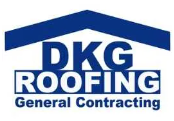The Disadvantages of Residential RoofingWhen it comes to your home, the roof is one of the most important parts. It protects you from the elements and keeps your home structurally sound. However, there are some disadvantages to having a roof, particularly a residential roof. Here are some of the main disadvantages of residential roofing.
1. What are the disadvantages of residential roofing?
There are several disadvantages of residential roofing that homeowners should be aware of. These include the following:
1. Roofs are susceptible to damage from severe weather.
2. They can be costly to repair or replace.
3. They require regular maintenance.
4. They can be difficult to install.
5. They can be noisy.
6. They can be drafty.
7. They can be difficult to clean.
8. They can be aesthetically unappealing.
9. They can be susceptible to leaks.
2. How can residential roofing be improved?
The disadvantages of residential roofing are many and varied. In some cases, they are the result of poor-quality materials or poor workmanship. In other cases, they are the result of weather damage or the effects of time and wear and tear. Whatever the cause, the result is the same – a roof that needs repair or replacement.
One of the most common problems with residential roofing is leaks. Leaks can be caused by a number of factors, including poor workmanship, damaged or missing shingles, and faulty flashing. If not repaired promptly, leaks can cause serious damage to the structure of your home, as well as to your possessions.
Another common problem with residential roofing is inadequate ventilation. Proper ventilation is essential to the health of your roof, as it helps to prevent the build-up of moisture and condensation. Without adequate ventilation, your roof is at risk of developing mold and mildew, which can lead to further damage.
In some cases, residential roofing problems are the result of poor design. For example, if your roof is not properly pitched, it can collect water in pooling areas, which can eventually lead to leaks. Additionally, if your roof does not have enough overhang, it can allow rain and snow to build up on the shingles, which can also lead to leaks.
If you are having problems with your residential roofing, the best course of action is to contact a reputable roofing contractor. They will be able to inspect your roof and determine the cause of the problem. In most cases, they will be able to make the necessary repairs to fix the problem. However, in some cases, it may be necessary to replace the entire roof.
3. What are the benefits of residential roofing?
If you are considering having a new roof installed on your home, you may be wondering if there are any benefits to choosing a residential roofing system. Here are some of the advantages that you may want to consider:
1. Increased curb appeal – A new roof can instantly increase the curb appeal of your home, making it more attractive to potential buyers if you ever decide to sell.
2. Increased energy efficiency – Many newer roofing materials are much more energy efficient than older ones, helping you to keep your energy bills down.
3. Improved protection – A new roof will provide better protection for your home against the elements, helping to keep it in good condition for many years to come.
4. Enhanced resale value – Because of all of the benefits that a new roof offers, it can also increase the resale value of your home if you ever decide to sell it.
5. Peace of mind – Knowing that your home is well-protected can give you peace of mind and help you to relax and enjoy your home more.
If you are considering having a new roof installed, be sure to weigh the benefits and drawbacks carefully to decide if it is the right decision for you and your home.
residential roofing
One of the most common problems with residential roofing is leaks. Leaks can be caused by a number of factors, including poor workmanship, damaged or missing shingles, and faulty flashing. If not repaired promptly, leaks can cause serious damage to the structure of your home, as well as to your possessions.
Another common problem with residential roofing is inadequate ventilation. Proper ventilation is essential to the health of your roof, as it helps to prevent the build-up of moisture and condensation. Without adequate ventilation, your roof is at risk of developing mold and mildew, which can lead to further damage.
In some cases, residential roofing problems are the result of poor design. For example, if your roof is not properly pitched, it can collect water in pooling areas, which can eventually lead to leaks. Additionally, if your roof does not have enough overhang, it can allow rain and snow to build up on the shingles, which can also lead to leaks.
In some cases, residential roofing problems are the result of poor design. For example, if your roof is not properly pitched, it can collect water in pooling areas, which can eventually lead to leaks. Additionally, if your roof does not have enough overhang, it can allow rain and snow to build up on the shingles, which can also lead to leaks.



